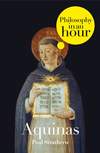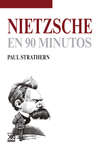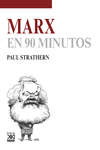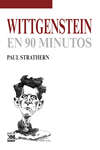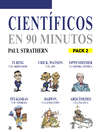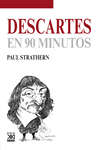Loe raamatut: «Thomas Aquinas: Philosophy in an Hour»
Thomas Aquinas
PHILOSOPHY IN AN HOUR
Paul Strathern

Contents
Cover
Title Page
Introduction
Aquinas’s Life and Works
Afterword
Further Information
From Aquinas’s Writings
Chronology of Significant Philosophical Dates
Chronology of Aquinas’s Life
Recommended Reading
About the Author
Copyright
About the Publisher
Introduction
Thomas Aquinas died on 7 March 1274, and ascended to heaven. Forty-nine years later he became a saint; and in 1879 Pope Leo XIII pronounced that Aquinas’s work was ‘the only true philosophy’.
Aquinas thus made a break with the great philosophical tradition of getting things wrong. This sets him apart from all other philosophers (and perhaps even from philosophy itself). Indeed, there would seem to be nothing more to say on the matter. Unless, that is, you happen to believe that our thinking has made some advances since the era of the Children’s Crusade and the chastity belt.
Being the subject of many a sickly hagiography, filled with winsome anecdotes and unquestioning acceptance of much metaphysical twaddle, has done little for Aquinas’s philosophical reputation. All we see is a shadowy figure amongst the incense clouds of theology. It is difficult to discern the finest philosophical mind in Europe for a thousand years (since St. Augustine). Yet Aquinas is unquestionably of this stature.
In order to appreciate Aquinas it is necessary to distinguish, as far as possible, between his theology and his philosophy. The former is absolutely correct on all counts, and beyond question. (Anyone who doubts this courts instant excommunication and the prospect of an afterlife in a third-world-style region devoid of modern domestic conveniences.) Philosophy, on the other hand, is something whose truth is open to question. This is what makes philosophy what it is.
Even in Aquinas’s time there was an implicit difference between theology and philosophy. Both conducted their arguments in a similar fashion – by deduction, reason, logic, and so forth. But in theology such knowledge was based upon the revealed truth of faith. The first principles of theology were supported by a belief in God. Philosophy, on the other hand, required no such belief. It began from first principles which were allegedly ‘self-evident’. These relied upon our apprehension of the world around us and the use of reason alone.
In practice, of course, theology and philosophy often overlapped – especially in the religion-dominated civilisation of the medieval era. Such a state of affairs may appear quaint in these godless times, but in fact our thinking is reduced to an uncannily similar state. Modern philosophy merely papers over the divide between theological and philosophical thinking. Even to philosophise, we must start with a belief in something – basic assumptions, which remain beyond our ability to prove by reason. For example, a belief in the coherence and consistency of the world, without which there could be no scientific laws. But surely this is just quibbling? Isn’t this what ‘self-evident’ means? It’s obvious the world is coherent, even if we have no way of proving it. Not so. Modern quantum mechanics, which deals with the behavior of subatomic particles, has neither coherence nor causality. This is of course science, and it is possible that we will soon come up with some overall theory (a theory of everything, say) which will overcome such apparent inconsistencies. But this is not the point. Under present conditions a belief in the ultimate consistency of the world is no more justifiable than a belief in God. In fact, this remains true under any conditions.
Which brings us to another relevant comparison. The late twentieth century is almost unimaginably different from the medieval era. The contemporary mind in an advanced technological society bears precious little resemblance to a medieval mind. Some philosophers and scientists have even begun to question whether these two individuals share such a thing as a common humanity. They argue that there is no such thing, only an ever-evolving species. For them, the concept of ‘humanity’ implies such outmoded entities as a ‘soul’, an unvarying ‘human condition’, a ‘consciousness’ which eludes scientific pinpointing, a belief in the uniqueness of ‘individuality’ and such – notions which have no place in a world of Darwinian evolution, DNA, cloning, and similar miracles which have contributed to modern self-understanding.
In which case, what possible relevance has Thomas Aquinas to us? The simple souls who cannot accept such an extremist scientific view – obstinately clinging to the notion that Hamlet, Faust, and even Dante still have something to say to us – will need little convincing. Those who believe that we are in the initial throes of an unprecedented era of human development (amounting to a fundamental evolutionary transformation) will need more persuading. But a case can be made. Progress in the six hundred years between Aquinas and the start of the twentieth century was to all intents a leisurely amble. By the end of the twentieth century this has quickened to a headlong dash. If we consider that the worldview (or mindset) of Aquinas has become an irrelevancy over the centuries, how much shorter before ours too joins the scrap heap? If progress is a film sequence, must every present frame be regarded as the only picture we see? ‘Serious’ modern thinkers may regard Aquinas much as we regard early Chaplin. How long before our thought processes are regarded like knockabout farce? Or might the cliché banana skins and saccharine sentimentality of Chaplin still have something to say to us?
We see our age as the greatest in human history (a delusion shared by many previous ages). Ours is a time of seemingly unending originality, yet such protean dynamism is not a necessary characteristic of great eras. Amongst the most long-lasting and stable civilisations, upon which vast intellectual and material resources were lavished, were those in China and medieval Europe. Here stasis was achieved, and with it a stability that enabled the development of structured thought and intellectual embellishment to an unparalleled degree. Dante’s Divine Comedy was perhaps the finest poetic construction humanity has yet produced, and the certainties it embodied were part and parcel of the medieval age. The vast gothic cathedrals of western Europe were arguably the first great collective monuments of humanity. They incorporated the disparate talents of their builders; and not since ancient Greece had works of such magnificence been produced without the goad of tyranny. The medieval age also produced its own collective monument of the intellect. Truly a mammoth of thought, this was the largely static, cumulative philosophy of Scholasticism. And the acknowledged maestro of Scholastic philosophy was Thomas Aquinas.
Aquinas’s Life and Works
Thomas Aquinas (Tommaso d’Aquino) was born in a castle four miles north of Aquino, in southern Italy. This rather gloomy castle still stands on the hill above the village of Roccasecca, just off the autostrada between Rome and Naples. Thomas was the seventh son of Count Landolfo d’Aquino; and the celebrated lyric poet Rinaldo d’Aquino may well have been one of his brothers. More interestingly, Thomas was the nephew of Frederick II, the maverick Holy Roman Emperor whose court in Sicily was the scene of a premature Renaissance. A man of exceptional talents, Frederick was excommunicated by the pope, but then set off on his own crusade which retook Jerusalem for Christendom (thus placing the pope in something of a quandary).
When Thomas was five he was sent to school with the monks at Monte Cassino. Here his acute intellect and religious temperament soon became apparent. But after nine years his education was interrupted when Uncle Frederick expelled the monks, because he reckoned they were becoming too friendly with his enemy the pope. Thomas was then sent to the University of Naples, which had been founded by Frederick. (Unfortunately by this time Frederick had also decided to found a new religion, with himself as messiah; and when his chief minister turned down the job of St. Peter, he had him blinded and displayed in a cage.)
Under the protection of Frederick II the University of Naples had become an important center for the new knowledge that was beginning to spread through the medieval world. Classical learning was being rediscovered, and the University of Naples attracted learned men from the farthest corners of Europe. Thomas was taught logic by a learned Transylvanian called Master Martin, and he attended lectures on natural philosophy (science) given by Master Peter of Hibernia (Ireland).
It was Master Martin who introduced Thomas Aquinas to Aristotle’s treatises on logic, which played such a dominant role in medieval thinking. Aristotle is generally credited with the invention of logic in the fourth century B.C. The word logic derives from the Greek logos (word, or language) and originally meant something akin to ‘the rules of discourse’. Aristotle regarded logic as an organon (tool) for use in philosophy. As such, it could be used in every branch of knowledge. The purpose of logic was analytika, ‘to unravel’.
But the logic that Aquinas inherited in the thirteenth century had made very little advance in the millennia since it had been invented by Aristotle. Its main form of argument was the syllogism, described by Aristotle as ‘an argument where certain facts are set down, and these facts generate further knowledge which necessarily follows’. A simple example of a syllogism is as follows:
All human beings are mortal.
All Greeks are human beings.
Therefore all Greeks are mortal.
When it was used by Aristotle, this tripartite mode of argument proved highly productive, liberating thought and leading to new knowledge. The basic structure of Aristotle’s logic remained sound in Aquinas’s time, but its methods were beginning to become stale and restrictive. Argument was viewed as little more than a ritual employment of logical method, rather than the tool that Aristotle had intended. Such methods were regarded as the holy writ, and little attempt was made to improve upon them. Aquinas’s quick brain soon enabled him to become adept at this verbal dexterity. He also found himself drawn to more profound philosophical speculations and realised that such methods could be used here too, in order to clarify his thoughts.
At the same time Aquinas found himself increasingly attracted by the Dominicans. This monastic order had been founded just over a quarter-century earlier in 1215 by St. Dominic, a Castillian of fanatical orthodoxy. The purpose of the order was to stamp out heresy. Its members wore black robes and had originally wandered the countryside relying on alms for their subsistence. But recently the order had become more oriented toward learning, which under St. Dominic had been forbidden – like soft mattresses – without special dispensation.
Thomas Aquinas’s decision to join the Dominicans caused consternation in his family. Mindful of his exceptional intellect and religious temperament, they had encouraged him to join the church. With his talents and family connections he could easily have become archbishop of Naples, a suitably prestigious position for a descendant of the military commander of the Holy Roman Empire (Thomas’s grandfather, after whom he was named). But the thought of an Aquino wandering the highways of Italy, penniless and begging, met with a reaction similar to a modern general’s son hitching off to join a hippy colony in the caves of Crete.
Yet Thomas was determined. He saw himself as following in the footsteps of another scion of a prestigious family who had recently given up everything for his beliefs – Francis of Assisi. Some two decades earlier Francis had founded the order named after him. He had dedicated his life to caring for the sick and the destitute, a term he stretched to include the animals and the birds, whom he regarded as his brothers. Thomas was to remain inspired by the example of St. Francis throughout his life, despite their deep differences in aim and temperament. When Thomas was found muttering on his own, he would be working his way through an Aristotelian proof rather than having a fraternal chat with the birds.
Before Thomas’s parents could act to stop him, he joined the Dominicans and gave up his studies at Naples. The freshly fledged young Dominican now set off to walk to Paris, his mind filled with new ideas from the works of Aristotle, exhilarated by the prospect of a life of holy penury devoted to study. Paris was the greatest center of learning in Christendom. Thomas wished to study there with Albertus Magnus, one of the finest scholars of the age, who was renowned for his commentaries on Aristotle.
The nineteen-year-old Thomas managed to get eighty miles down the road, as far as the shores of Lake Bolsano, north of Rome. Then his brothers, who had been dispatched on horseback by his mother, caught up with him. Immediately they set upon Thomas, bound him, and carried him back to the family castle at Roccasecca. Here Thomas was imprisoned in a tower. In order to bring him to his senses, his father offered to fix him up with the post of abbot of Monte Cassino (now refurbished by Frederick II with monks who regarded the pope less favourably). But Thomas wasn’t interested in returning to become headmaster of his old school. What were the Aquinases to do with their obstinate offspring, who appeared determined to become a socially inferior saint? Thomas’s mother, who was of down-to-earth Norman stock, decided to try a more French approach – and introduced a buxom young peasant girl into Thomas’s tower one cold winter’s night.
Tasuta katkend on lõppenud.
